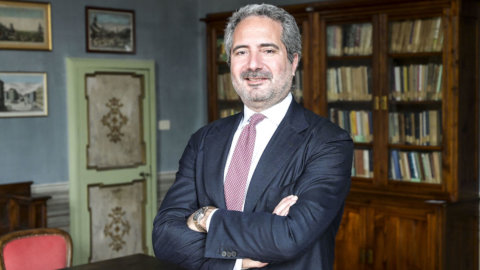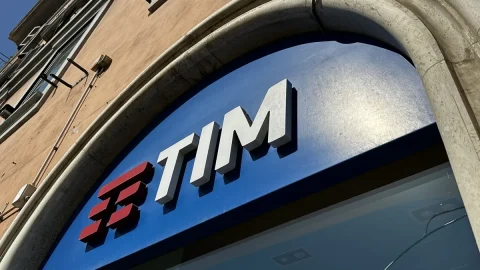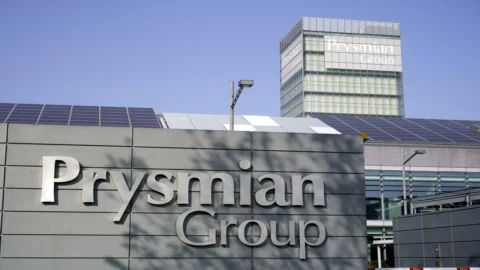The specter of recession is real and the banks will have to take it into account set dividends. After the words of the number one supervisor of the ECB, Andrea Enria, who has repeatedly launched a warning about future coupons by virtue of the current economic context, the warning now comes directly from the Governor of the Bank of Italy, Ignazio Visco, who during his speech at the ABI meeting stated: "The risk of a contraction in economic activity is concrete" and "the policies for the distribution of profits and provisions must take due account of the high uncertainty and the substantial downside risks that permeate the evolution of the macroeconomic scenario”.
Visco: "With a stop to Russian gas, growth only starting from 2024"
Speaking precisely of the possible drop in our GDP, Visco explained that the geopolitical tensions linked to the Russian-Ukrainian conflict "are having a marked impact on the Italian economy” and the growth forecasts elaborated last January, which envisaged an increase in GDP of over 3% on average for the two-year period 2022-2023, have been revised downwards”. The June estimates indicate, in the absence of an interruption in gas supplies from Russia, a downward revision of growth by 2 percentage points over the two-year period as a whole.
But what happens if Moscow turns off the taps? In the event of a stop on Russian gas from the third quarter, le estimates speak of a contraction of the GDP on average for the two-year period 2022-2023 and growth only starting from 2024, added Visco.
Visco: "Reassuring indications on inflation"
But the glass is still half full. "Comforting" indications arrive on prices In the current economic situation conditioned by the high inflation due to the Russo-Ukrainian war, comforting indications arrive from "medium-long term inflation expectations, which remain substantially anchored to the objective, and from the dynamics of wages, which does not seem at the moment to indicate the start of a dangerous run-up between prices and wages“, said Visco, according to whom these signals indicate how the goal of bringing inflation back in line “can take place through a gradual normalization of monetary policy and without causing a sudden slowdown in the economy”.
According to the number one on via Nazionale, the 25 basis point increase in rates announced for 21 July by the ECB and the further increase expected in September if inflation remains high, dictate the pace of the "subsequent, gradual but lasting rate hike process” which “will depend on new economic data and how it affects the outlook for prices”.
The ECB's commitment on the monetary policy front will be successful only if it is supported by efforts to "maintain public debts on a path that continues to ensure their full sustainability", underlined Visco, according to whom the ECB "must be supported a clear one determination of the tax authorities to keep public finances on a path of rebalancing”.
The GDP marked a "slight increase" in the first quarter and the growth acquired for 2022 is equal to 2,6%. “For the second quarter we expect robust growth”, with an acquired growth that would rise “over 3%” in 2022. This was stated by Daniele Franco, minister of the Economy, speaking at the ABI meeting.
Banks: "Fragility in some medium-small banks"
Most of the "less significant" Italian banks present "a balanced situation" but "elements of fragility remain in some cases” which “for some banks, less proactive and characterized by managerial deficiencies, can jeopardize the sustainability of the business model to the point of degenerating into crisis situations”, said Ignazio Visco. These intermediaries, added Visco, were asked "to promptly evaluate each action aimed at overcoming the critical issues including aggregation hypotheses with other intermediaries".
Franco: "We will continue to help families and businesses"
Responding indirectly to the words of the Governor of Bank of Italy, in his speech to the ABI assembly, the Minister of Economy Daniele Franco reassured that the Government will continue to pursue the policy of interventions to deal with the impact that the high energy price is having on households and businesses. Franco referred to "more selective" and calibrated interventions that take into account the economic conditions of families.
The minister also underlined that in the first quarter of 2022, GDP marked a "slight increase" and the growth acquired for 2022 is equal to 2,6%. “For the second quarter we expect robust growth“, with an acquired growth that would rise “over 3%” in 2022. An improvement that is also possible thanks to industry. Industrial production rose 2 percent in the second quarter, Franco said. However, it should be considered that, according to the latest data published today by Istat, the seasonally adjusted industrial production index fell by 1,1% in May compared to April. Since the beginning of the year, the figure stands at +3,4%.
Patuelli: "Possible increase in NPLs"
Non-performing loans 'may start to grow again' due to the long-term effects of the pandemic crisis and the impact of the war in Ukraine on the economic cycle but "the entry into force of European innovation, strongly supported by Abi, which reduces by a thirdo the capital absorption of NPLs sold from bank to bank". This was stated by the president of ABI, Antonio Patuelli, in his speech to the ABI assembly. “Even in the presence of the pandemic – recalled Patuelli – the banks have overall continued to strengthen capital and liquidity and reduce non-performing loans which have not exploded also due to the presence of moratoriums which must be reintroduced with the prolongation of the pandemic and with the effects of the war Russo-Ukrainian".
For Patuelli "the consolidation processes" of the banks “they must also develop internationally, especially in Europe, to encourage the growth of banking entities that are competitive in size with the American and Asian giants”. The president of ABI recalled how in Italy “bank mergers have taken place in a framework of constant strong competition. In proportion to the populations, more banking mergers have taken place in Italy than in other countries in the rest of Europe”.
The ABI president then referred to sustainability, emphasizing that the banks “are committed to a more sustainable economy” and that “they must evaluate climate risks better and better, but they must not be seen as substitutes for the Authorities and public functions and must not be burdened by additional capital requirements”.
Shortly before Patuelli's speech, the ECB had published the results of the first stress tests on climate risk according to which European banks could record overall losses of around 70 billion euros on loans and on the market due to financial and economic shocks deriving from climate risks if these are not addressed in an orderly manner in the short term.





